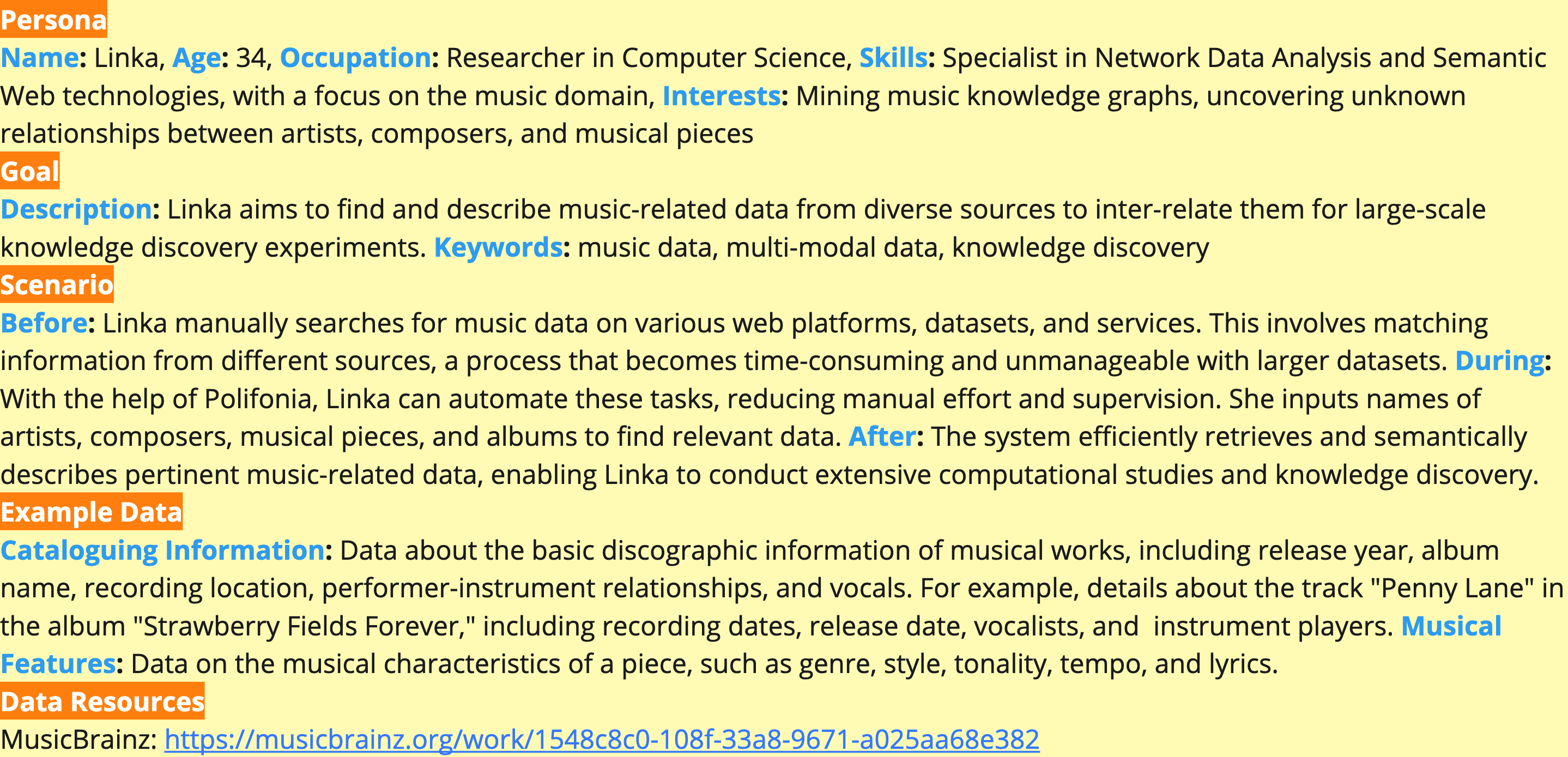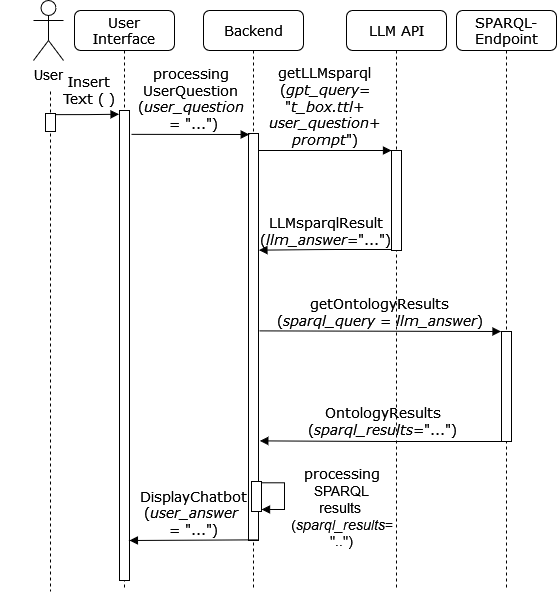OntoChat: a Framework for Conversational Ontology Engineering using Language Models

0

Sign in to get full access
Overview
- Presents a framework called OntoChat for conversational ontology engineering using large language models
- Aims to enable non-expert users to collaboratively build and refine ontologies through natural language interactions
- Leverages the capabilities of large language models to understand and process user input, generate relevant responses, and incrementally update the ontology
Plain English Explanation
OntoChat: a Framework for Conversational Ontology Engineering using Language Models is a novel framework that allows non-expert users to collaboratively build and refine ontologies through natural language conversations. Ontologies are formal representations of knowledge that define the concepts, relationships, and rules within a particular domain. Traditionally, creating and maintaining ontologies has been a complex and time-consuming task, often requiring specialized expertise.
OntoChat aims to make ontology engineering more accessible by leveraging the power of large language models (LLMs). These advanced AI models can understand and process natural language input, generate relevant responses, and incrementally update the ontology based on user interactions. This allows users to engage in conversational exchanges to define new concepts, clarify relationships, and refine the ontology in an intuitive and collaborative manner.
By lowering the barrier to entry for ontology engineering, OntoChat has the potential to democratize knowledge representation and enable a wider range of individuals and communities to contribute to the development of ontologies that capture their domain-specific expertise. This can lead to more comprehensive and accurate ontologies that better reflect real-world understanding, with applications in areas such as information retrieval, knowledge management, and decision support systems.
Technical Explanation
OntoChat: a Framework for Conversational Ontology Engineering using Language Models presents a framework that leverages large language models to enable non-expert users to collaboratively build and refine ontologies through natural language interactions.
The key components of the OntoChat framework include:
-
Language Model Interface: This module handles the processing of user input, using an LLM to understand the semantic meaning and intent behind the user's natural language queries and comments.
-
Ontology Reasoner: This component is responsible for interpreting the user's input in the context of the existing ontology, identifying relevant concepts and relationships, and suggesting updates or modifications to the ontology.
-
Ontology Update Engine: This module is responsible for incrementally updating the ontology based on the user's input and the recommendations from the Ontology Reasoner. It ensures the consistency and coherence of the evolving ontology.
-
Conversation Manager: This component coordinates the flow of the conversation, managing the back-and-forth exchanges between the user and the system, and providing relevant and contextual responses to the user.
The framework is designed to enable an iterative and collaborative ontology engineering process, where users can engage in natural language dialogues to define new concepts, clarify relationships, and refine the ontology. The LLM-powered language understanding and ontology reasoning capabilities allow the system to interpret user input, identify relevant ontological elements, and suggest appropriate updates to the knowledge base.
Through this conversational approach, OntoChat aims to make ontology engineering more accessible to non-expert users, empowering them to contribute their domain-specific knowledge and collaborate in the development of ontologies that better capture the nuances and complexities of the real world.
Critical Analysis
The OntoChat framework presents a promising approach to making ontology engineering more accessible and collaborative, leveraging the capabilities of large language models to enable natural language-based interactions. However, the paper also acknowledges several potential limitations and areas for further research:
-
Ontology Consistency and Coherence: While the Ontology Update Engine is responsible for maintaining the consistency and coherence of the evolving ontology, the paper does not provide detailed insights into the specific mechanisms or algorithms used to achieve this. Further exploration of robust ontology management strategies would be valuable.
-
Scalability and Performance: The paper does not address the scalability of the OntoChat framework, particularly in terms of handling large and complex ontologies or supporting high volumes of concurrent user interactions. Evaluating the system's performance and scalability under realistic deployment scenarios would be an important next step.
-
User Evaluation and Feedback: The paper focuses primarily on the technical aspects of the OntoChat framework and does not provide extensive user-centric evaluation or feedback. Assessing the usability, effectiveness, and user satisfaction of the system through user studies and field trials would be crucial to understanding its real-world applicability and impact.
-
Integration with Existing Ontology Engineering Tools: The paper does not discuss how the OntoChat framework might integrate with or complement existing ontology engineering tools and workflows. Exploring such integration opportunities could potentially enhance the overall ontology engineering ecosystem.
-
Ethical Considerations: As with any AI-powered system, there may be potential ethical concerns, such as bias in the language model or unintended consequences of allowing non-experts to directly influence the development of ontologies. The paper does not address these important issues, which should be carefully considered.
Despite these areas for further research and refinement, the OntoChat framework represents an intriguing and innovative approach to democratizing ontology engineering by leveraging the power of large language models and natural language interactions. If successfully developed and deployed, it could significantly lower the barriers to entry and enable a wider range of individuals and communities to contribute to the creation and maintenance of domain-specific ontologies.
Conclusion
OntoChat: a Framework for Conversational Ontology Engineering using Language Models presents a novel framework that aims to make ontology engineering more accessible and collaborative by leveraging the capabilities of large language models. By enabling non-expert users to engage in natural language conversations to define concepts, clarify relationships, and refine ontologies, OntoChat has the potential to democratize knowledge representation and lead to the development of more comprehensive and accurate ontologies.
While the paper identifies several areas for further research and refinement, the core idea of using conversational interfaces and LLM-powered reasoning to support ontology engineering is a promising step towards making this crucial task more inclusive and accessible. As language models continue to advance and become more integrated into our digital tools and workflows, frameworks like OntoChat could play a significant role in empowering a wider range of individuals and communities to contribute to the collective understanding and representation of knowledge.
This summary was produced with help from an AI and may contain inaccuracies - check out the links to read the original source documents!
Related Papers


0
OntoChat: a Framework for Conversational Ontology Engineering using Language Models
Bohui Zhang, Valentina Anita Carriero, Katrin Schreiberhuber, Stefani Tsaneva, Luc'ia S'anchez Gonz'alez, Jongmo Kim, Jacopo de Berardinis
Ontology engineering (OE) in large projects poses a number of challenges arising from the heterogeneous backgrounds of the various stakeholders, domain experts, and their complex interactions with ontology designers. This multi-party interaction often creates systematic ambiguities and biases from the elicitation of ontology requirements, which directly affect the design, evaluation and may jeopardise the target reuse. Meanwhile, current OE methodologies strongly rely on manual activities (e.g., interviews, discussion pages). After collecting evidence on the most crucial OE activities, we introduce textbf{OntoChat}, a framework for conversational ontology engineering that supports requirement elicitation, analysis, and testing. By interacting with a conversational agent, users can steer the creation of user stories and the extraction of competency questions, while receiving computational support to analyse the overall requirements and test early versions of the resulting ontologies. We evaluate OntoChat by replicating the engineering of the Music Meta Ontology, and collecting preliminary metrics on the effectiveness of each component from users. We release all code at https://github.com/King-s-Knowledge-Graph-Lab/OntoChat.
Read more4/29/2024


0
Improving Ontology Requirements Engineering with OntoChat and Participatory Prompting
Yihang Zhao, Bohui Zhang, Xi Hu, Shuyin Ouyang, Jongmo Kim, Nitisha Jain, Jacopo de Berardinis, Albert Mero~no-Pe~nuela, Elena Simperl
Past ontology requirements engineering (ORE) has primarily relied on manual methods, such as interviews and collaborative forums, to gather user requirements from domain experts, especially in large projects. Current OntoChat offers a framework for ORE that utilises large language models (LLMs) to streamline the process through four key functions: user story creation, competency question (CQ) extraction, CQ filtration and analysis, and ontology testing support. In OntoChat, users are expected to prompt the chatbot to generate user stories. However, preliminary evaluations revealed that they struggle to do this effectively. To address this issue, we experimented with a research method called participatory prompting, which involves researcher-mediated interactions to help users without deep knowledge of LLMs use the chatbot more effectively. This participatory prompting user study produces pre-defined prompt templates based on user queries, focusing on creating and refining personas, goals, scenarios, sample data, and data resources for user stories. These refined user stories will subsequently be converted into CQs.
Read more8/30/2024


0
Chatbot-Based Ontology Interaction Using Large Language Models and Domain-Specific Standards
Jonathan Reif, Tom Jeleniewski, Milapji Singh Gill, Felix Gehlhoff, Alexander Fay
The following contribution introduces a concept that employs Large Language Models (LLMs) and a chatbot interface to enhance SPARQL query generation for ontologies, thereby facilitating intuitive access to formalized knowledge. Utilizing natural language inputs, the system converts user inquiries into accurate SPARQL queries that strictly query the factual content of the ontology, effectively preventing misinformation or fabrication by the LLM. To enhance the quality and precision of outcomes, additional textual information from established domain-specific standards is integrated into the ontology for precise descriptions of its concepts and relationships. An experimental study assesses the accuracy of generated SPARQL queries, revealing significant benefits of using LLMs for querying ontologies and highlighting areas for future research.
Read more8/6/2024


0
Conversational AI Multi-Agent Interoperability, Universal Open APIs for Agentic Natural Language Multimodal Communications
Diego Gosmar, Deborah A. Dahl, Emmett Coin
This paper analyses Conversational AI multi-agent interoperability frameworks and describes the novel architecture proposed by the Open Voice Interoperability initiative (Linux Foundation AI and DATA), also known briefly as OVON (Open Voice Network). The new approach is illustrated, along with the main components, delineating the key benefits and use cases for deploying standard multi-modal AI agency (or agentic AI) communications. Beginning with Universal APIs based on Natural Language, the framework establishes and enables interoperable interactions among diverse Conversational AI agents, including chatbots, voicebots, videobots, and human agents. Furthermore, a new Discovery specification framework is introduced, designed to efficiently look up agents providing specific services and to obtain accurate information about these services through a standard Manifest publication, accessible via an extended set of Natural Language-based APIs. The main purpose of this contribution is to significantly enhance the capabilities and scalability of AI interactions across various platforms. The novel architecture for interoperable Conversational AI assistants is designed to generalize, being replicable and accessible via open repositories.
Read more7/30/2024